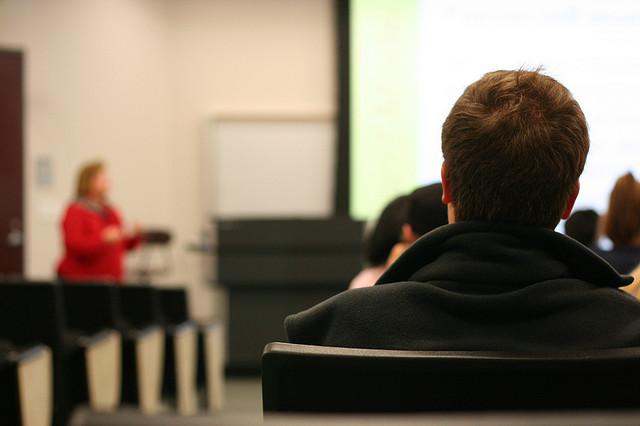 In an oped piece published today I’ve focused on the issue of safeguarding Australian school children from the risks of radicalisation and extremism.
In an oped piece published today I’ve focused on the issue of safeguarding Australian school children from the risks of radicalisation and extremism.
I’d like to add four extra thoughts on this issue. First, in The Australian article I say that our academic researchers have let us down in that we don’t have a good understanding of what’s happening to some of the most vulnerable in our school system in relation to extremism and radicalisation.
But in making that observation, I do recognise that the importance of education has been raised before in the context of counter-radicalisation in Australia. I think that one of the reasons we don’t have much research data on what’s happening in our schools is because the radicalisation of younger people hasn’t, until recently, been seen as a real threat. I suspect that many teachers have been reluctant to admit that there’s an issue with extremism.
My plea here would be for some basic research to measure the extent of the problem, and to determine what teachers think about the issue. It would’ve been a major challenge to try to get approval and funding for such a project in the past. But I’d think it would get much more support now from our education authorities.
The second issue I’d like to raise is the need for schools to teach critical thinking as a measure to prevent radicalisation. Typically, of course, schools take it as their core mission to teach critical thinking anyway. Learning to think clearly is one of the reasons for educating students in the first place. But we shouldn’t ignore the benefits of that core mission in the counter-radicalisation field. Extremists see things in black and white; if students are able to think critically, they’ll be more resilient to extremist messages.
In my op-ed I note that association with gangs and petty criminality may be an indicator of a young person’s exposure to extremism. Here, I’d note that terrorists often use crime to fund their activities; so my third point is that in any discussion about radicalisation in Australian schools, that the link between crime and terrorism should also be considered.
Finally, strategies to raise awareness among teachers and educators about radicalisation and extremism should ensure that they take into account the complexity of the issue. A simple set of indicators related to signifying behaviours can be counter-productive, unless it’s also accompanied by a well-informed and comprehensive framework of understanding.
Parents, teachers and other socialising agents need to have the skills, capacity and awareness necessary to identify any worrying behaviours. The challenge is how to develop that framework without oversimplifying radicalisation. Observable behaviours may not always be indicative of radicalisation, but issues such as drugs, gangs, or inter-generational conflict often are. That’s why we need more research and stronger conceptual models in this area.
Anthony Bergin is deputy director of ASPI. Image courtesy of Flickr user Bill Erickson.